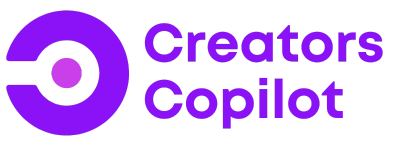Artificial intelligence (AI) is making waves in nearly every industry, and content creation is no exception. AI-powered tools promise to revolutionize writing – automating tasks, generating ideas, and even producing entire articles. The reality, however, is often less impressive. Have you ever felt like your AI writing partner isn’t quite as intelligent as you’d hoped? Let’s dive into why this happens and the tactics you can employ to get better results.
Short and Unspecific Prompts
AI language models are like eager students – they thrive on clear instructions. If your prompts are short, vague, or open-ended, the AI may struggle to understand your desired outcome. For example, you issue a broad command like “Write a blog post about marketing,” the AI lacks a specific focus. The results will likely feel generic or uninspired.
Solution: Get specific! Instead, try, “Write a blog post comparing email marketing and social media marketing for small businesses. Include tips for choosing the best platform.”
You Give Up After the First Answer
Treat your AI content generator like a collaborator. The first output is rarely the final draft. AI learns through continuous improvement. Without your input, the tool can’t refine its understanding of your needs and preferences.
Solution: Provide feedback! Tell your AI tool what you like and dislike about its responses. Rate the outputs. Was the text too formal? Not creative enough? Let the AI know! Over time, it will get better at matching your specific style. You can also give AI a copy of the blog it created combined with your adjustments in the conversation, this will help it learn over time.
For example: If the results aren’t quite right, say something like, “Make this more conversational,” or “Can you add a section about the cost-effectiveness of each approach?”.
You Are Not Specific on the Context
AI models learn from vast datasets of text and code. Without context, they might pick the most statistically common interpretation of your prompt – even if that’s not what you meant.
Solution: Set the scene! For example, instead of just “Write a product description,” try “Can you make this more focused on email marketing and include statistics?”
You Are Too Ambitious
While AI is powerful, it’s not a substitute for human creativity and experience. If you ask for highly nuanced, personal insights, or expect the tool to understand complex technical jargon, you’re likely to be disappointed. For example, asking an AI to write a deeply personal essay about your childhood experiences might not yield the emotional depth you desire. In some cases, AI was trained to make up an answer, which is not a fact, if they’re being push too much to give result.
Solution: Set realistic expectations. AI excels at generating outlines, summaries, or variations on a theme, leaving you to add the personal touch or specialized knowledge.
You’re Depending on One AI
Different AI models have unique strengths and are trained on different sets of data. Relying on a single AI limits your potential results. Creator feedback suggests Gemini outperforms both ChatGPT and Bing when it comes to web searches and incorporating up-to-date information, thanks to its integration with Google’s search capabilities. However, when it comes to structure, intelligence, and writing style, determining the clear leader between the three is not easy, with each AI offering unique strengths.
Solution: Try different AI tools like ChatGPT, Bing, or Gemini and compare the outputs! You might even find that combining responses from several AIs can produce the best results for your specific needs
Verdict
AI-powered content creation tools offer incredible potential, but getting the most out of them requires a shift in how you interact with them. Think of your AI less as a magical solution and more like a skilled but slightly clueless assistant. With practice, you can train your AI to deliver the quality content you crave! What has your journey been like in training your AI? Have you discovered any tips and tricks that helped you get better results? Share your experiences in the comments below!
Don’t forget to follow us on YouTube for insightful podcasts and stay updated on the latest AI developments and helpful tips by connecting with us on LinkedIn and Facebook.


